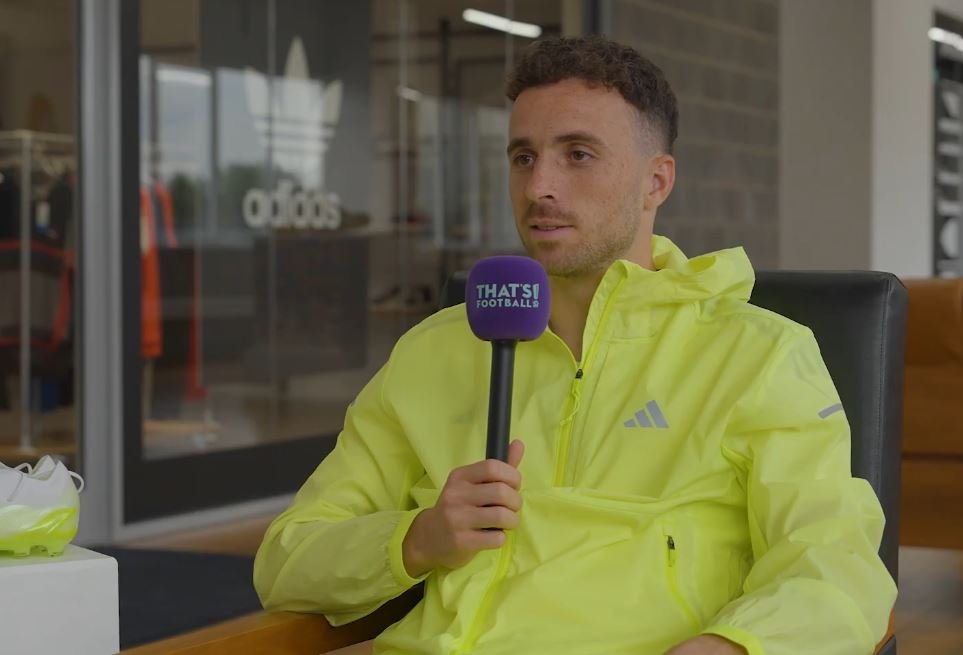
Diogo Jota’s remuneration was more than just a figure on a paycheck; it represented acknowledgment, tenacity, and a career marked by consistent advancement. He made £140,000 a week at Liverpool, which put him in the upper echelons of Premier League forwards. However, when tragedy struck in July 2025 and he and his brother André died in a car accident, the significance of his wage changed to something more profound: a show of solidarity for his family and a long-lasting relationship between the club and the player.
Although £7.28 million a year could appear to be solely a financial investment, its significance was incredibly effective in illustrating Jota’s progress. Jota personified the idea that perseverance eventually pays off, both literally and figuratively, from his early days at Paços de Ferreira, where his earnings were tiny and his ambitions were higher than his paychecks, to his breakthrough at Wolverhampton, where his weekly compensation increased to over £35,000. In addition to significantly raising his financial status, his 2022 Liverpool contract, which was worth about $47 million over five years, demonstrated the team’s unshakeable belief in his ability.
Diogo Jota – Personal and Professional Information
| Category | Details |
|---|---|
| Full Name | Diogo José Teixeira da Silva |
| Known As | Diogo Jota |
| Date of Birth | December 4, 1996 |
| Birthplace | Porto, Portugal |
| Date of Death | July 3, 2025 (aged 28) |
| Height | 1.78 m (5 ft 10 in) |
| Position | Forward / Winger |
| Youth Career | Gondomar (2005–2013), Paços de Ferreira (2013–2015) |
| Senior Clubs | Paços de Ferreira, Atlético Madrid, Porto (loan), Wolves, Liverpool |
| Liverpool Debut | 2020 |
| Shirt Number | 20 |
| Weekly Salary | £140,000 |
| Annual Salary | £7.28 Million |
| Contract Value | $46.8 Million (signed in 2022, 5 years) |
| Career Earnings | $53.8 Million (approximate) |
| Net Worth | £42 Million (approximate, 2025) |
| Parents | Joaquim Silva, Isabel Silva |
| Sibling | André Silva (died in same accident, 2025) |
| Spouse | Rute Cardoso (m. 2025–2025) |
His position in the hierarchy was made clear by comparisons with his comrades. Even though Virgil van Dijk made £11.44 million a year and Mohamed Salah made an incredible £20.8 million, Jota’s £7.28 million showed balance and respect. It made him remarkably comparable to dependable football players who aren’t quite in the highest income bracket allocated for world-renowned players like Cristiano Ronaldo, whose outrageous €200 million contract in Saudi Arabia revolutionized compensation structures. Jota’s worth, however, was evident, consistent, and well-earned within Liverpool’s ecology.
This story’s poignant aspect came to light after his death. By deciding to keep paying Jota’s salary until 2027, Liverpool showed compassion and made sure his family would receive more than £21.8 million. This decision redefined how teams deal with the tragic death of a player and was very creative in its emotional resonance. Supporters saw it as a human deed that went beyond numbers and contracts, serving as a reminder that tragedy does not erase loyalty in sports.
The timing gave it more symbolic significance. Jota’s shirt number, 20, coincided with the fact that Liverpool had just won their 20th league title. His legacy became entwined with the club’s history when they retired the number in his honor. This act was particularly evident to fans: Jota’s contribution was memorialized, his wage became a permanent commitment, and his family’s safety was maintained.
In terms of money, Jota’s professional path advanced far more quickly than that of many of her contemporaries. His weekly salary increased from £57,000 at Wolves to £92,000 upon his arrival at Anfield, and then to £140,000 in 2022, reflecting his changing status. Younger Portuguese athletes, such as João Félix and Rafael Leão, admired his trip as evidence that hard work, flexibility, and faith in oneself could lead to both athletic achievement and financial security.
It is impossible to overestimate the importance of people in addition to pay and statistics. Jota was adored for his perseverance, selfless runs, and unwavering determination in addition to his 65 goals in 182 games for Liverpool. This balance was reflected in his pay, which was not the highest but was remarkably long-lasting due to his position in a system where every component was important.
Football salaries are frequently criticized for being exorbitant, especially during lean economic times. But as supporters correctly point out, players like Jota bring in enormous sums of money from sponsorships, souvenirs, and television. His objectives were closely related to global fan engagement, television ratings, and ticket sales. His pay was extremely effective in this regard, serving as an investment that paid off for Liverpool both monetarily and emotionally.
Jota’s ascent had an inspirational undertone throughout Portugal. His profits demonstrated how a young man from Gondomar may achieve the level of financial stability that was previously unthinkable through simple perseverance. For ambitious players who required real-life evidence that aspirations could lead to real outcomes, his story was especially helpful.
The larger picture is straightforward but profound: Jota’s pay may be computed on paper, but legacy is what really matters. Liverpool conveyed a message that went beyond sports and secured his family’s future by upholding his contract. Contracts are signed and expire, salaries come and go, but compassion, when exhibited in this way, endures forever.
